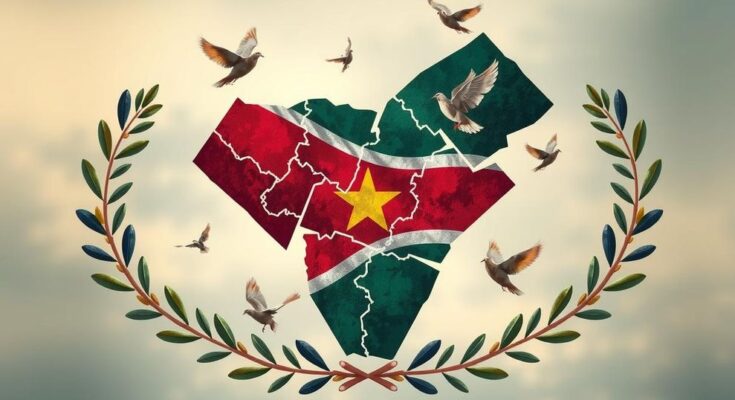The Taqaddum coalition, Sudan’s largest anti-war group, split on February 10, leading to two factions: Taasis, which is aligned with the RSF, and Somoud, which seeks to maintain neutrality. This split may allow Somoud to re-establish its credibility with civilians, as it distances itself from allegations linking it to the RSF. The situation remains critical, with ongoing humanitarian crises and complex political dynamics.
On February 10, the Taqaddum coalition, Sudan’s largest anti-war group, fragmented over the decision to join a new government set up by the paramilitary Rapid Support Forces (RSF). Formed in October 2023, Taqaddum included various armed movements, political factions, and civil society members, led by former Prime Minister Abdalla Hamdok, who was ousted in 2021. The rift led to the creation of two separate entities, with one faction, now called Taasis (Foundation), aligning with the RSF.
The Taasis faction primarily consists of armed movements seeking political power through the RSF’s government, while the remaining members formed a smaller anti-war coalition, Somoud (Resilience), led by Hamdok. Experts note that traditional political leaders avoid collaboration with the RSF due to its reputation as a perpetrator of genocide in Darfur, with the United States designating the RSF as such. Therefore, maintaining neutrality and integrity is critical for Somoud.
Initially, Taqaddum aimed to mediate peace during the conflict between the RSF and the army that began in April 2023. However, as tensions escalated and humanitarian crises deepened, the coalition struggled to maintain relevance, especially after signing a Declaration of Principles with the RSF in January 2024. This agreement coincided with reported atrocities committed by the RSF, which led to perceptions that Taqaddum was legitimizing the paramilitary group’s actions.
The backlash from the community highlighted the growing concern among Western diplomats regarding Taqaddum’s alignment with the RSF. Analysts suggest that the dissolution of Taqaddum may present an opportunity for Somoud to establish a more credible relationship with the Sudanese populace. Although smaller, Somoud could potentially garner support if it successfully reconnects with local organizations and remains steadfast in advocating for peace.
Furthermore, Somoud leaders like Bakry Elmedni emphasize their commitment to outreach, countering narratives that Taqaddum was too close to the RSF as politically motivated attacks. While many Sudanese citizens prefer military control for relative stability, the army has faced accusations of committing violence against perceived RSF supporters. Stakeholders, including human rights organizations, continue to monitor these developments closely, ensuring accountability as the situation evolves.
The splintering of Taqaddum into Taasis and Somoud presents a pivotal moment for Sudan’s anti-war movement. While Taasis aligns with the RSF, Somoud seeks to distance itself from the paramilitary group to preserve its integrity and legitimacy. Analysts suggest that Somoud has the potential to reconnect with the Sudanese populace by focusing on local outreach and addressing the complexities of current political realities. The ongoing situation remains highly fluid, with major implications for peace and governance in Sudan.
Original Source: www.aljazeera.com




